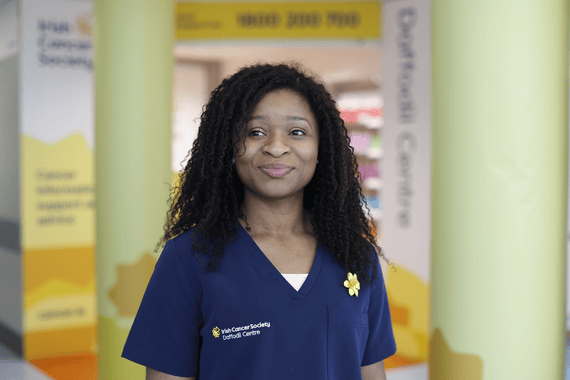Cancer of unknown primary (CUP)
Diagnosis and tests
Diagnosing cancer of unknown primary (CUP)
Your family doctor (GP) will talk to you about your medical history, your symptoms and do a physical examination. They may do a blood test to look for signs of disease and to assess your general health. Your GP will refer you to hospital if they think you need more tests. Tests you might have include:
A scan that uses sound waves to look at different parts of your body. A device like a microphone is passed over a part of your body, such as your abdomen (tummy area), to give high-frequency sound waves. These create an image which can show up any abnormality.
Read more about ultrasound scans.
This is a special type of X-ray that gives a detailed 3D picture of the tissues inside your body.
Read more about CT scans.
A scan that uses magnetic energy and radio waves to build up a picture of the tissues inside your body. During the scan you will lie inside a tunnel-like machine.
Read more about MRI scans.
The removal of a small amount of tissue from your body to find out if abnormal cells are present.
Blood tests can check how well certain organs are working, such as your liver or kidneys. This might provide information about whether cancer is affecting these organs.

If you are diagnosed with cancer of unknown primary (CUP), we're here for you.
Our cancer nurses are here if you need information or just want to talk. They can help you to understand your diagnosis and what to expect, send you information and tell you about our services.
Waiting for test results
While some results may come back quickly, others may take a few weeks. Waiting for results can be an anxious time. It may help to talk things over with your doctor or nurse or with a relative or close friend.
You can also call our Support Line on 1800 200 700 or visit a Daffodil Centre to speak to a cancer nurse.
Why isn't cancer of unknown primary (CUP) staged?
Staging refers to the size and location of your cancer and how much it has spread. Staging helps doctors plan the best treatment for patients. Patients are given a number stage, usually from 1 to 4. The higher the number, the more advanced the cancer. For example, stage 4 means the cancer has spread to other parts of the body.
There is no staging system for CUP because the cancer has already spread and doctors don't know where the primary cancer has started.
You will usually still have tests to find out where the secondary cancer is. Your medical team will use those results and all the other information they have gathered to decide on the best treatment options for you.
Continue reading about cancer of unknown primary (CUP)



Get help & support

Support Line
Free support pack

